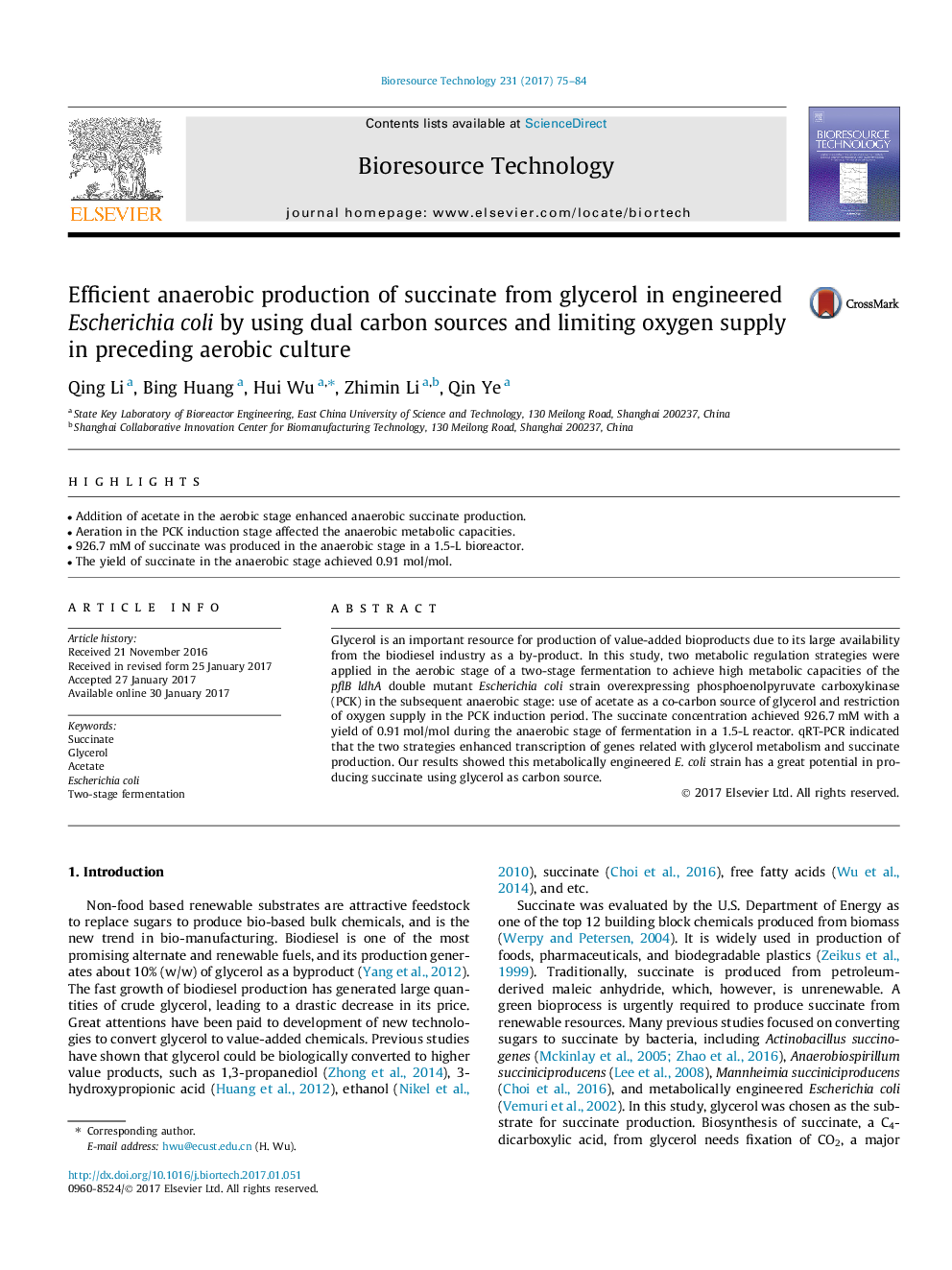| Article ID | Journal | Published Year | Pages | File Type |
|---|---|---|---|---|
| 4997419 | Bioresource Technology | 2017 | 10 Pages |
Abstract
Glycerol is an important resource for production of value-added bioproducts due to its large availability from the biodiesel industry as a by-product. In this study, two metabolic regulation strategies were applied in the aerobic stage of a two-stage fermentation to achieve high metabolic capacities of the pflB ldhA double mutant Escherichia coli strain overexpressing phosphoenolpyruvate carboxykinase (PCK) in the subsequent anaerobic stage: use of acetate as a co-carbon source of glycerol and restriction of oxygen supply in the PCK induction period. The succinate concentration achieved 926.7Â mM with a yield of 0.91Â mol/mol during the anaerobic stage of fermentation in a 1.5-L reactor. qRT-PCR indicated that the two strategies enhanced transcription of genes related with glycerol metabolism and succinate production. Our results showed this metabolically engineered E. coli strain has a great potential in producing succinate using glycerol as carbon source.
Related Topics
Physical Sciences and Engineering
Chemical Engineering
Process Chemistry and Technology
Authors
Qing Li, Bing Huang, Hui Wu, Zhimin Li, Qin Ye,
